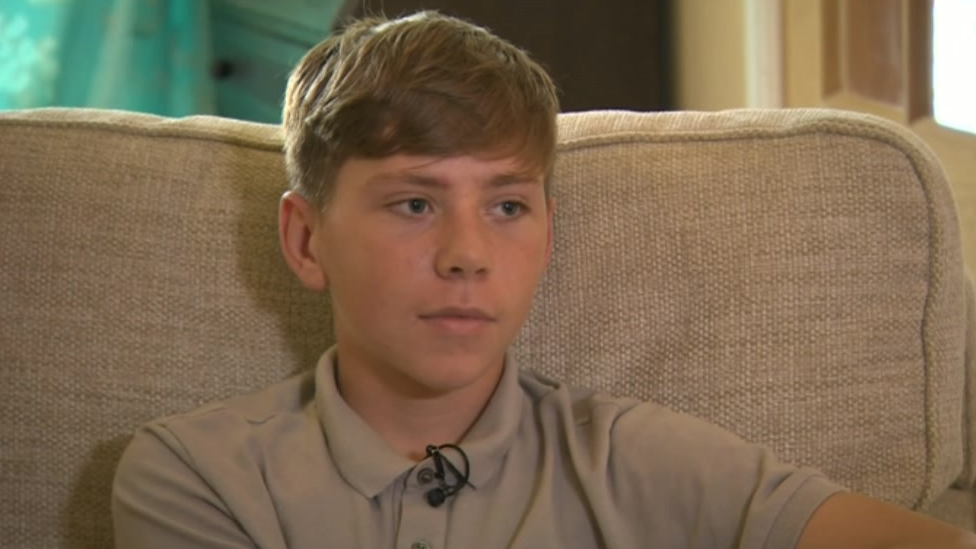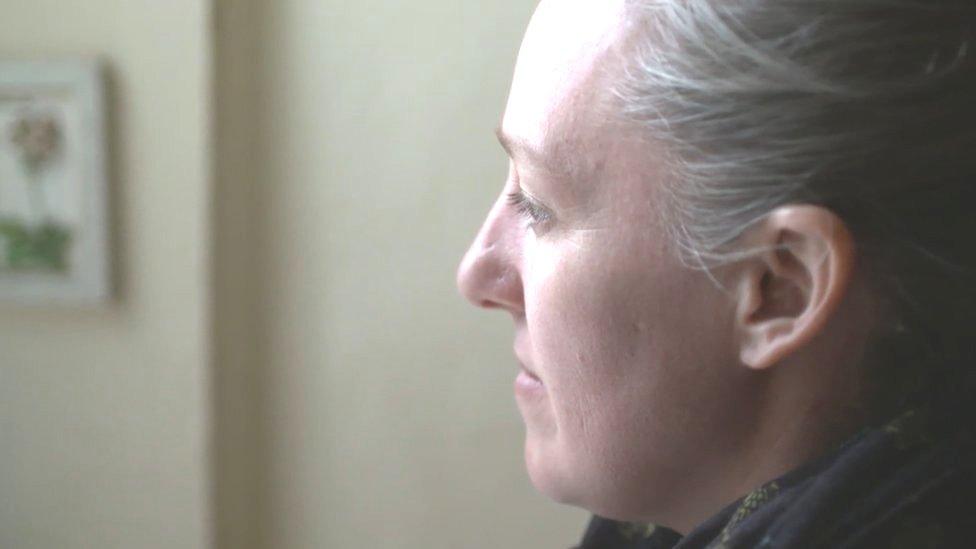Chesterfield school anxiety pupil 'treated like truant'
- Published
Kai's mum Debbie Bendall says dealing with the problem has reduced her to tears
The mother of a 14-year-old boy says he has been treated like a truant after his social anxiety disorder led him to miss much of the academic year.
Kai, from Chesterfield, has a condition known as school refusal and has only attended about 15 days since January.
His mother, Debbie Bendall, said Outwood Academy had threatened to fine the family over his non-attendance.
The school said it recognised students experienced challenges and it continued to improve its mental wellbeing plan.
Mental health charity Mind said there should be more help for students affected by social anxiety disorder - which is sometimes known as school phobia or school refusal - in which a child will not go to school on a regular basis or has problems staying in class.
'Think you're naughty'
The teenager said his condition, diagnosed by a child psychiatrist, made him feel sick at school and prompted panic attacks, heavy breathing and headaches.
He said: "I get really anxious and I go into fight or flight mode. Basically I end up kicking off.
"Teachers don't notice you have it. They just think you're misbehaving and not concentrating in class and think you're naughty.
"I get told off a lot because I get anxious and don't do my work."

Kai said he wanted to go to school and yearned to live an ordinary life
His mother said the family had been threatened with fines by the school and was even referred to social workers at one point.
Ms Bendall said there was no softening in the school's attitude, even after Kai had received his official diagnosis in early 2018.
"The whole process we've been through has been really traumatic for the last two to three years," she said.
"We were pressured by the school constantly - we're going to fine you if your child's attendance isn't 88% - and that put a lot of pressure on Kai.
She said she was working with Kai's teachers on a plan to get him into school more regularly as he prepared for his GCSEs but did not know how things would go.
"We talk about what he'd like to do in the future and how he can achieve [that] but at this point I don't know if he'll get any GCSEs," she said.
Mind has called for school refusal to be given more recognition to stop young sufferers being tagged as truants.
Vicki Nash, head of policy and campaigns, said: "We really need to have a fundamental rethink about how we can make sure pupils with mental health problems can stay in school."


Characteristics of school refusal
Emotional distress about attending school
Anxiety, temper, depression or physical symptoms. If they are allowed to stay at home the symptoms often disappear
Absence of significant antisocial behaviours
Child expresses interest in school work, despite not wanting to attend
Does not try to hide absences from parents
Source: Mind

You may also be interested in:
A spokesperson for Outwood Academy said it would be inappropriate to comment on individual students but added that the academy "recognises that some of our students experience many challenges and we take the role we play in their care incredibly seriously".
"As a trust, Outwood has worked hard to develop and evolve a wide range of strategies to support its students and staff," they added.
"Structures are in place in the academies, including at Outwood Academy Newbold, to support mental wellbeing and will be further increased as part of the trust's Mental Wellbeing Strategy."
They said the school's plans needed to be "constantly evolving" to provide better support for pupils.
'Let down'
A Department for Education spokesperson said: "The advice to schools is clear, they should authorise absences due to illness, related to both physical and mental health."
Lawyers from Irwin Mitchell said they had been working with 20 families who felt let down by the government over the issue.
Polly Sweeney, from the firm, said: "As a result of the lack of progress, we have now been instructed by a number of families of vulnerable children with school attendance difficulties, to advise them on a judicial review of the current system as they now consider that legal action is the only solution to addressing the issues they are facing."

Follow BBC East Midlands on Facebook, external, Twitter, external, or Instagram, external. Send your story ideas to eastmidsnews@bbc.co.uk, external.
- Published26 June 2019
